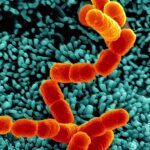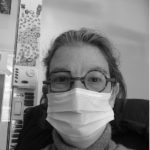Link to Pubmed [PMID] – 32526204
Link to DOI – S1525-0016(20)30289-610.1016/j.ymthe.2020.05.025
Mol Ther 2020 Sep; 28(9): 2056-2072
Pompe disease is a neuromuscular disorder caused by disease-associated variants in the gene encoding for the lysosomal enzyme acid α-glucosidase (GAA), which converts lysosomal glycogen to glucose. We previously reported full rescue of Pompe disease in symptomatic 4-month-old Gaa knockout (Gaa-/-) mice by adeno-associated virus (AAV) vector-mediated liver gene transfer of an engineered secretable form of GAA (secGAA). Here, we showed that hepatic expression of secGAA rescues the phenotype of 4-month-old Gaa-/- mice at vector doses at which the native form of GAA has little to no therapeutic effect. Based on these results, we then treated severely affected 9-month-old Gaa-/- mice with an AAV vector expressing secGAA and followed the animals for 9 months thereafter. AAV-treated Gaa-/- mice showed complete reversal of the Pompe phenotype, with rescue of glycogen accumulation in most tissues, including the central nervous system, and normalization of muscle strength. Transcriptomic profiling of skeletal muscle showed rescue of most altered pathways, including those involved in mitochondrial defects, a finding supported by structural and biochemical analyses, which also showed restoration of lysosomal function. Together, these results provide insight into the reversibility of advanced Pompe disease in the Gaa-/- mouse model via liver gene transfer of secGAA.


